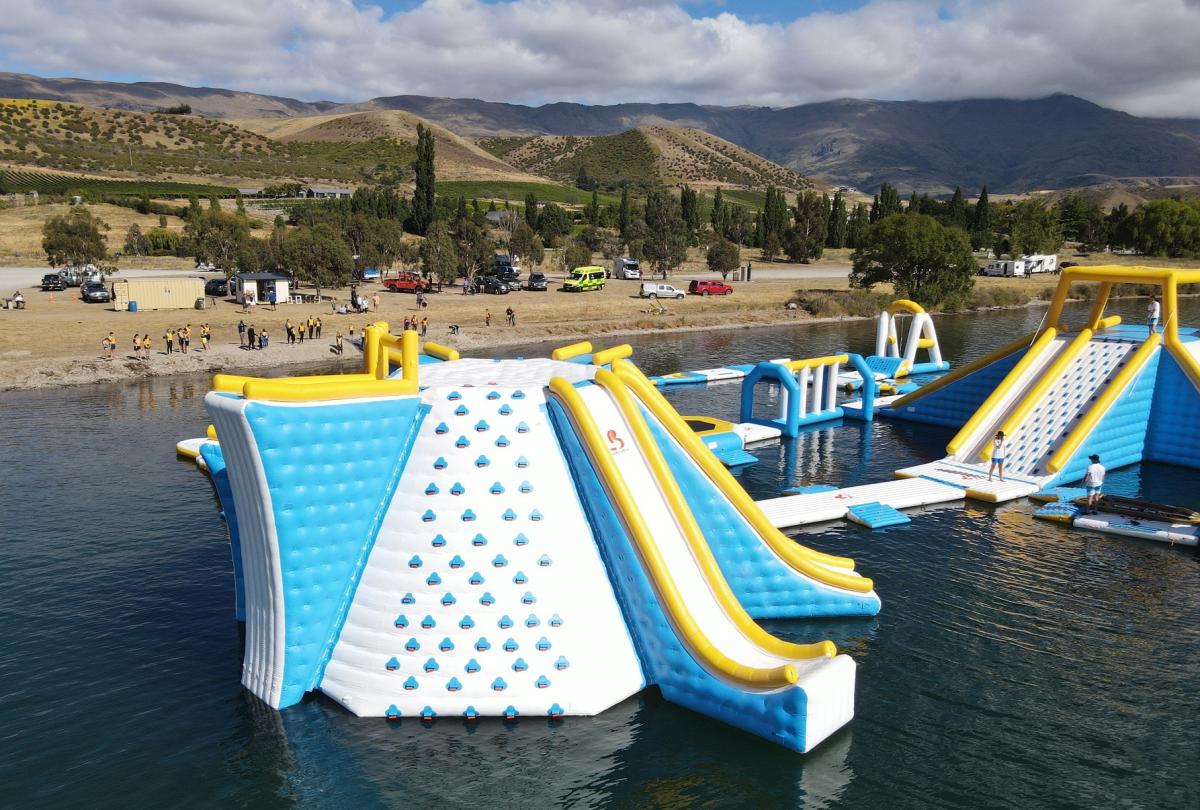
Emily Rutherford says she feels "personally victimised" by iPhone's weather app.
Rutherford, who co-owns the Kiwi Water Park in Lake Dunstan near Cromwell, said the app kept reporting the temperature in her area was up to 5C cooler than MetService predicted - and even MetService could be under-estimating the summer heat.
She worried it was putting off potential customers.
"It keeps saying the weather is awful in my location and it means people think it's awful… they aren't coming along on the days that it says it's awful.
"At the moment it says it's 18C and raining - but at the moment it's 25, warm, a little bit cloudy but still sunny and warm. The weather keeps being miles different to what it is."
WeatherWatch head forecaster Philip Duncan said it was a known issue. International firm The Weather Company provided data to Apple, Samsung and Google, he said.
"They get weather data from satellites, from weather observations - they've got thousands of them in New Zealand - aircraft and cellphones themselves."
But he said unlike other countries, where more local data was available to be overlaid to provide a more detailed picture, in New Zealand the structure of Niwa and MetService data made that harder.
"In Sydney you get 'there's a downpour coming in one minute' and it nails it. In New Zealand, the government has chosen to let Niwa and MetService be the gatekeepers of that.
"The government doesn't understand what New Zealand is missing out on by letting Niwa and MetService have commercial privilege to public data. Most people don't log on to the MetService - if you're an 18-year-old going to the beach, you grab your phone."
Niwa meteorologist Tristan Meyers said he was not convinced that was the reason.
"Australia is commercialised too - it's a cost-recovery. It costs a lot to put weather stations everywhere and catalogue data. They all have different ways of accessing that data and getting that data."
The data was just one part of a forecast, Meyers said. The other part was the prediction model being used.
"The weather model Apple uses might not be as good for that location... some models don't perform that well in some areas. Others perform better in other areas.
"For instance, the Met Office, the Bureau of Meteorology and Niwa, we all run local, high-resolution weather models. The apps - Niwa weather or even MetService - they're underpinned by those more local high-resolution tailored forecasts.
"Apple wouldn't be using those. If she was using a different app like Niwa's or MetService's it might be more accurate in some ways and less in others.
"It's nothing to do with commercialising data... New Zealand is definitely not the only place where you have to pay some cost-recovery to access it."
Duty Minister Nicola Grigg said it was not something she could comment on.
Apple also did not want to comment.
In September, Science, Innovation and Technology Minister Judith Collins announced a merger of weather forecasters, with Niwa taking over MetService. However, MetService would remain New Zealand's authorised meteorologist, responsible for providing warnings and advice on severe weather.
RNZ has approached MetService for comment.













